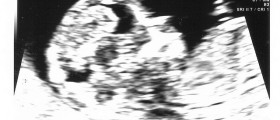
If you are found to have an ectopic pregnancy, what are your care options? An ectopic pregnancy always comes as a nasty surprise, because an egg that has implanted itself outside of the uterus (normally the fallopian tubes) can never turn into a viable pregnancy. Furthermore, these pregnancies can potentially place the mother's life at risk because her fallopian tube might rupture.
But you might be relieved to learn that surgery is not always necessary when it comes to ectopic pregnancies, and that there are other options available in addition to surgery, depending on your condition. There are in fact three different approaches to treating ectopic pregnancies, and we will now take a look at each one of them.
1) So-called "expectant management" of ectopic pregnancies is sometimes applied in cases where the pregnancy seems to already be ending on its own. In layman's terms, it basically means "watch and see". Doctors who use expectant management of ectopic pregnancies will do blood tests to confim that hCG levels are dropping, and the woman will miscarry naturally. If this happens, no particular medical treatment is needed.
2) Medicinal treatment involves taking drugs to help you miscarry the pregnancy. A common example of drugs used is methotrexate. While this can save the woman suffering from an ectopic pregnancy from surgery and involved risks, this approach is not without risks and side effects either, and can drag on for weeks. Additionally, some people have philosophical or religious objections to this approach.
3) Surgery can be used to remove either the embryo, or the entire fallopian tube. In cases where rupture has occurred or is likely to happen soon, this is the only option, and is carried out as emergency treatment. Women undergoing surgery for an ectopic pregnancy need general anesthesia, and will have a small incision made in their abdomen (laparoscopy).
















Your thoughts on this
Loading...